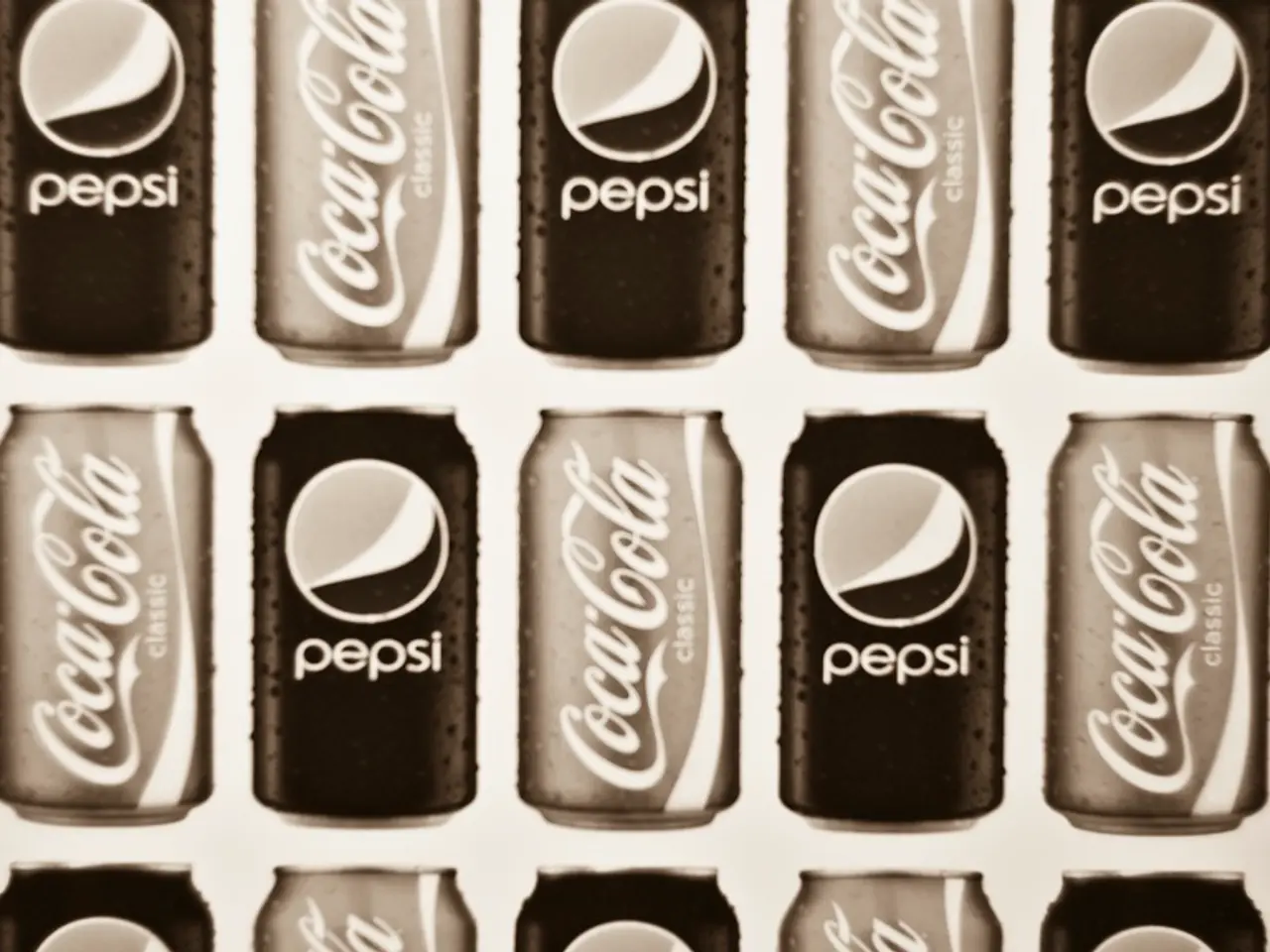Explore Palestinian Soft Drink Brands Challenging Coca-Cola's Dominance
In the Middle East and North Africa (MENA) region, a significant boycott of Coca-Cola is underway, with reports indicating that 53% of consumers are boycotting certain brands, including Coca-Cola, due to its perceived connections to Israeli apartheid and ongoing conflict [1]. This boycott reflects longstanding anger towards Coca-Cola's associations, particularly given its ownership ties and facilities on occupied Palestinian land, which are viewed as complicity with Israeli occupation policies.
The boycott is not a new phenomenon. Historically, the 13-nation Arab League boycotted Coca-Cola from 1966 to 1991 over its relations linked to the Israeli occupation [1]. The recent resurgence of boycotts reflects renewed consumer activism triggered by the ongoing conflict in Gaza and Israel, as well as environmental and ethical concerns tied to corporate complicity with the Israeli state. Coca-Cola's marketing efforts aimed at minimizing these connections have further fueled consumer backlash in the region.
Beyond calls for consumer boycott, the Palestinian BDS (Boycott, Divestment, Sanctions) movement continues to pressure companies linked to Israel's policies, urging intensified efforts to block companies seen as supporting Israel’s military actions and occupation [3].
Palestinian-owned cola alternatives such as Palestine Drinks, Chat Cola, and Gaza Cola operate on a smaller, localized scale, reducing transport emissions, supporting regional economies, and aligning more closely with principles of climate justice. Notably, the profits from these brands go directly to humanitarian aid for Palestinians. For instance, Palestine Drinks sells between 3 to 4 million keffiyeh- and olive-tree-emblazoned cans of soda per month, with profits going directly to the charity Safad Foundation. Gaza Cola's funds are used to rebuild the Al-Karama Hospital in Northern Gaza.
Coca-Cola, on the other hand, is among the top global plastic polluters, producing over 3 million tons of plastic packaging annually. This environmental impact, coupled with its controversial ties to the Israeli apartheid state, has led to its addition to a boycott list.
In response to criticism, Coca-Cola has issued a rare apology for a marketing campaign that downplayed links between Israeli occupation and Coke. However, this has not been enough to quell the widespread grassroots consumer boycotts in the region.
References:
[1] The Electronic Intifada. (2021, June 24). Coca-Cola boycott gains momentum in MENA region. Retrieved from https://electronicintifada.net/content/coca-cola-boycott-gains-momentum-mena-region/31366
[2] Al Jazeera. (2021, July 1). India-Pakistan tensions: What's behind the border standoff? Retrieved from https://www.aljazeera.com/news/2021/7/1/india-pakistan-tensions-whats-behind-the-border-standoff
[3] The Guardian. (2021, May 20). Palestine Drinks: the cola brand challenging Coca-Cola in the West Bank. Retrieved from https://www.theguardian.com/world/2021/may/20/palestine-drinks-the-cola-brand-challenging-coca-cola-in-the-west-bank
[4] Reuters. (2021, June 15). India raises tariffs on 28 U.S. products in trade spat with Washington. Retrieved from https://www.reuters.com/world/india/india-raises-tariffs-28-us-products-trade-spat-washington-2021-06-15/
[5] Middle East Monitor. (2021, July 15). Israel's apartheid regime: A brief overview. Retrieved from https://www.middleeastmonitor.com/20210715-israels-apartheid-regime-a-brief-overview/
- The Palestinian BDS movement advocates for intensified efforts to block companies seen as supporting Israel’s military actions and occupation, beyond the consumer boycott of brands like Coca-Cola.
- In the MENA region, a vibrant community of activists is urging for sustainability in both lifestyle and corporate practices, driven by concerns related to climate justice and the ongoing conflict in Gaza and Israel.
- Amidst the boycott of Coca-Cola, the rise of art and culture in regional magazines has emphasized the need for corporate entities to prioritize identity and social responsibility.
- The emergence of Palestinian-owned cola alternatives such as Palestine Drinks, Chat Cola, and Gaza Cola showcases how personal growth and entrepreneurship can contribute to education-and-self-development and humanitarian aid for Palestinians.
- While Coca-Cola faces boycotts over its environmental impact and controversial ties to Israeli apartheid, social-media platforms have become a powerful tool for activists to spread news about war-and-conflicts, crime-and-justice, and general-news, shaping public opinion and fostering political discussions.
- A shift in career-development opportunities has arisen, with many turning to entertainment and fashion-and-beauty industries for personal expression and connection to their cultural identity.
- Food-and-drink establishments have followed suit, offering locally-sourced products and supporting the regional economy, in an effort to promote community well-being and combat global plastic pollution.
- The recent boycott of Coca-Cola coincides with heightened tensions between India and Pakistan, shedding light on the complex interconnections between wars-and-conflicts, politics, and consumer decisions.
- Accidents and accidents-insurance have become prominent topics on social-media, as users debate the role of corporations in promoting safety standards and protecting the environment.
- Sports and sports-betting enthusiasts have increasingly spoken out on social-media, advocating for ethical practices within the industry and promoting fairness and transparency in the treatment of athletes and fans.
- As the weather heats up in the MENA region, meteorologists and environmental activists have warned about the potential impacts of climate change, urging increased action on sustainability in all aspects of life.




